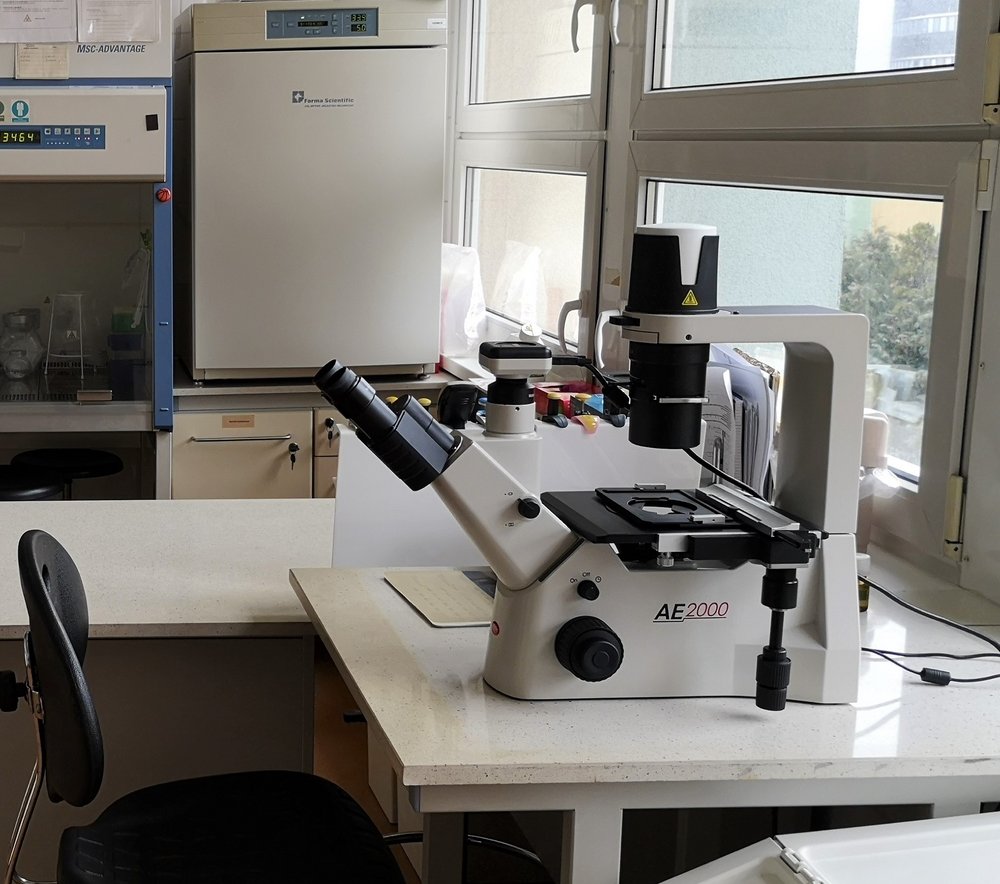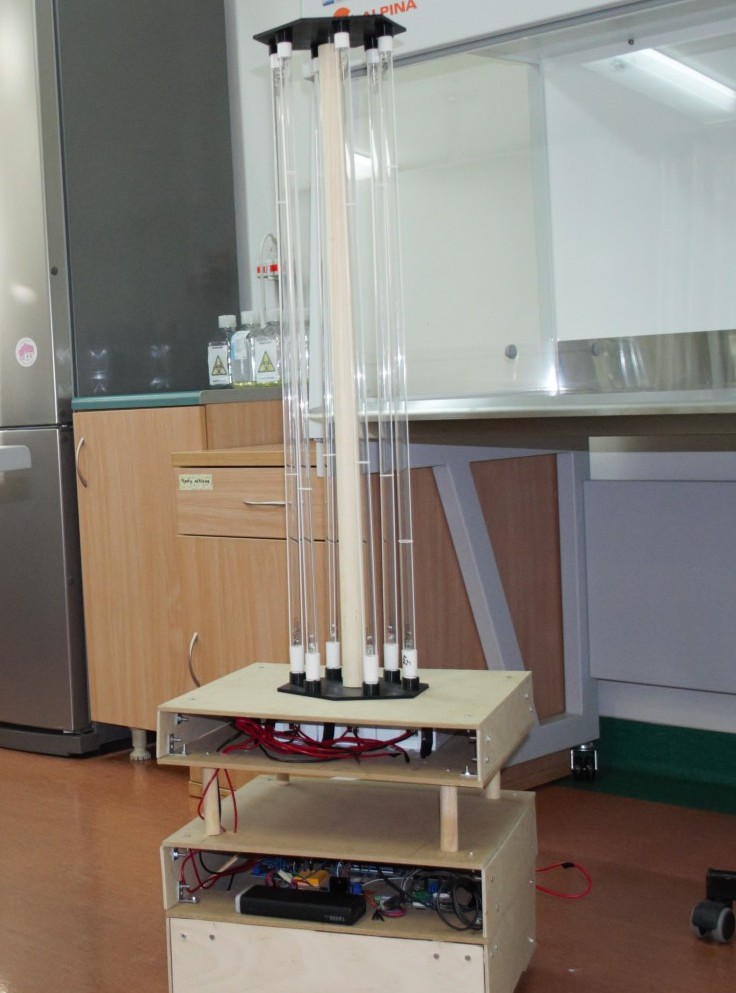It was already before the outbreak of the coronavirus pandemic that the lack of efficient disinfection methods constituted a huge difficulty in the functioning of hospitals.
- Robo-UV is a robot to disinfect surfaces, which has been designed by City Robotics. It makes use of ultra-violet radiation (UV-C) and it can be used to disinfect hospitals on a large scale. Radiation is harmful to humans, but the robot is immune to it. Most importantly, this method ensures extremely effective elimination of harmful microorganisms - Deepjyoti Nath, co-founder of City Robotics.
Microbiologists from the Faculty of Biology and Environmental Protection, University of Lodz, have obtained preliminary results of research on the effectiveness of Robo-UV against human pathogens. The research carried out at the end of November in the laboratory of the Department of Immunology and Infectious Biology had very promising results. Robo-UV has been tested for bactericidal activity against staphylococcus aureus. This microorganism can colonize our skin, nasopharyngeal mucosa, but in special cases it causes difficult-to-heal wound infections, pathological necrotic and inflammatory changes, bacterial infections associated with biomaterials or hospital infections.
In preliminary studies, the microbiologists showed that direct exposure of S. aureus to Robo-UV radiation led to complete sterilization (killing all microbes) just after 3 minutes. It should be noted that only 35% of UV radiation efficiency was used for this experiment (i.e. 2 of 6 UV lamps in the prototype). Using its full UV efficiency, means much better results in terms of further reduction of time necessary to kill microbes.
Functioning of the Robo-UV prototype exceeded expectations and encouraged its creators to expand their cooperation with microbiologists from the Faculty of Biology and Environmental Protection, University of Lodz.
- Our cooperation was initiated by Adam Kaźmierczak - director of the Technology Transfer Center University of Lodz. Our team is eager to cooperate with other researchers. We are particularly inspired by interdisciplinary cooperation, and cooperation with IT specialists is our debut. Confronting ideas, terminology or the very perspective of people from various fields of science opens us to new ideas and going beyond standard procedures. We hope that cooperation with Deepjyoti in the field of his invention will continue to develop - comments Dr. Karolina Rudnicka from the Department of Immunology and Infectious Biology, Faculty of Biology and Environmental Protection, University of Lodz.
According to the 2018 reports by the European Center for Disease Prevention and Control (ECDC) of 2018, around 90000 people in the EU die each year as a result of the so-called "hospital-acquired infections", and the European Union to face this problem, spends around EUR 5.5 billion per year on the fight against drug-resistant human pathogens.
- Prevention of hospital-acquired infections is now of particular importance as patients hospitalized due to SARS-CoV-2 virus infection are more prone to simultaneous infections with other microorganisms present in the hospital environment. As a study conducted on critically ill COVID-19 patients shows 40.7% of them developed co-infections acquired in hospitals. My dream is that the robot will be used in a fight against a dangerous virus and help save human lives in these uncertain times - Deepjyoti Nath adds.
University of Lodz is one of the biggest universities in Poland. Its mission is to educate top-class scientists and specialists in numerous fields of humanities, social sciences, natural and exact sciences as well as health sciences. UniLodz cooperates with business, both at the staff level by providing qualified employees as well as at the scientific level, by offering its know-how to enterprises from various areas of economy. University of Lodz is an academic institution open to the world - the number of its international students is constantly growing, while its Polish students, thanks to Exchange programmes, get to know Europe, Asia and travel overseas. The University is a part of Lodz, it operates for and with the community of Lodz by getting involved in many socio-cultural projects.
Text: Deepjyoti Nath, dr Karolina Rudnicka
Edit: Promotion Center UL



